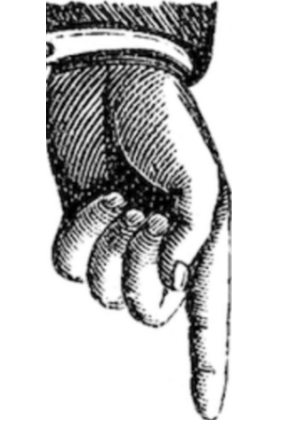Prescriptions That Cause Hair Loss

Let's get into today's topic, prescriptions that cause hair loss. So this is actually one blind spot that many people don't even look at. And if you are trying to understand what a blind spot is, I talk about this in podcast Episode 3, where I talk about blind spots and how things are covered up and things we trip over again and again, and again without really realizing this.
And I have this all just in case you're driving, or just in case you are doing something where you can't take notes. I have this all in a lovely PDF that you can download for free on my website, alopeciaangel.com/free, and you will see the prescriptions that cause hair loss.
Common Medications That Can Cause Hair Loss
One of them in particular are acne medications containing vitamin A, and this looks like Accutane. This looks like retinoids and various acne medications do cause hair loss. And many times we go to the doctor, we have a symptom, we have an issue, we have a health concern and we go, and we're like, Hey doc, this is what's going on.
They give you a prescription and no one is asking questions and no one is telling. Hey, this has a side effect. Hey, this has, this possible ramification. This is what has been seen in the data or of multiple patients taking this. And so sometimes we go to the doctor and let's say, we're on 1, 2, 3 different medications. And it could be one of the medications that's causing the other symptom or the other new health concern. Does this make sense?
Medications Linked to Hair Loss: A Growing List
So in order to empower ourselves, we need to advocate for ourselves and we need to ask more questions. Acne medication, is it really necessary? is the high blood pressure medication, which a lot of 'em do cause hair loss. Beta blockers, ACE inhibitors, diuretics, all of these cause and can cause hair loss, not to say that it'll cause hair loss in everybody, but it can cause, and these are, you could see it off the label that it has this potential side effect.
Now will it always have the same side effect in everybody? No, but it's definitely possible. And so if you're taking hormone replacement therapy, if you're taking Parkinson's disease drugs, if you're taking cholesterol lowering drugs, if you're taking anti-clotting, if you're taking birth control pills or antacids, these also cause hair loss and can cause alopecia.
A Holistic Approach to Healing Alopecia
Now, would I say this is the only root cause to your hair loss? No, more than likely. It's not more than likely it's this and maybe 1, 2, 3 other things. I actually had somebody right in the other day and say, Hey, can this cause alopecia? And they were taking Zoloft, Prozac, Elavil, Vivactil, Paxil. All these things, antifungal, antibiotics, antidepressants and mood stabilizers also cause hair loss, epileptic, drugs, drugs that treat breast cancer and other cancers, drugs that suppress the immune system cause hair loss.
The Paradox of Immune-Suppressing Drugs for Alopecia
So this is an oxymoron in many ways, because when you go to the doctor to the dermatologist, the first thing that they wanna do is give you those drugs that do suppress the immune system. Those are your cortisone shots. Those are your cortisone, but in a tablet form, those are the creams. Those are the many things that do suppress your immune system that can also cause the hair loss and, make things worse along the way.
And so more than likely if you're listening to my podcast and if you're following me, it's because conventional medicine hasn't done its job to heal your alopecia and that's okay. Because it didn't heal mine either. It was the natural route that healed my alopecia and there is a way there is another option.
Prescription Medications: A Limited Solution for Alopecia
It's just not in a pill form. It's not in a cream form. It's not in a one size fits all form. And I talk about this more in my free training. That's coming up link in the show notes, but I also talk about this in the program because it's not a one size fits all. You can't take a birth control pill and have everyone do well on the birth control pill, there's always gonna be a certain percentage. I’ll be it could be small that it doesn't sit well with them, or they don't like the symptoms or the side effects.
And so the same thing happens when it comes to alopecia meds. So the same thing happens when it comes to the creams or the cortisone shots. It's not one size fits all and it won't work for everybody, and with myself included and all my clients. I gotta tell you none of the medications that have been offered to me, work. None of the medications or the solutions, quote, unquote, that have been offered to my clients work. That's why they come to me because I get them results because they see the results in less than eight weeks.
A Comprehensive List of Medications That May Contribute to Hair Loss
So let's keep going though on the prescriptions that cause hair loss. So I already mentioned a lot of them. It could be acne medications, antibiotics, antidepressants, mood stabilizers, birth control pills, antacids, anti-clotting, drugs, cholesterol-lowering drugs.
Take Action: Download the Free PDF and Advocate for Your Health
And so first thing for you to do is to grab this handy PDF it's for free. Go to alopeciaangel.com/free, and you'll be able to download this, share it with all your friends, share it with all the females and males and your family and your loved ones. But then also see if you're taking any of these medications.
Ask the Right Questions About Medication Side Effects
And a lot of them are here by name. So for example, Zoloft, Prozac, Paxil, Accutane, etcetera. They're all here by name as well. So double check to see if any of the medications that you're taking are on this list. And then also start asking those questions. Start, next time you go to the doctor that you have some sort of health concern outside of alopecia, obviously because they can't help you with the alopecia.
But if you have, I don't know, a sore throat, if you have the flu, if you have some sort of other health concern, that's going on. And you think you need medication for it and they give you something, start asking those questions. What are the side effects? What can this cause? What can this be? What are the ramifications of taking it?
And parents do the same for your children, cuz guess what? No one is gonna advocate for your children. Like the own parents and for medical doctors, they have a limited amount of time to see you. They have a limited amount of time to really diagnose you and to get you the meds that you need, right? You're in and out in like seven minutes.
That's really what, what that is and what that looks like today in the US. And in other countries, you have a, a wait list of six months. You have a wait list of three months and the backlog is ridiculous and many countries. And I just moved from Europe and in Europe it was that way just now. And so. If there's a backlog, if there's a situation where you can't get certain medications or you can't get certain help, either way, do your research, either way ask your doctor, what are the side effects?
What could I be looking at? What could this also be interacting with? Because not all doctors look at. The same situation. So your primary care doctor is probably not necessarily looking at maybe what your gynecologist had offered you, or maybe what your endocrinologist had offered you. Right? They're not really talking to each other.
And so you need to do that legwork for them and say, "Hey, I'm taking this other medication I'm taking this other medication" because there could be also interactions with that. So the first step is to see what prescriptions that you're currently taking could be causing you hair loss.
And the other aspect of that is to also see and advocate and ask those extra questions. What can this cause what are the long term side effects? What peer review studies do you have to support it? What, where's the data, right? Because you wanna know what are the possible side effects? And what are your other options outside of that?
Let's say, if you don't wanna take medications, okay, you don't wanna take medications for your, let's say, your allergies. So what are your other options? And if your doctor can't help you, then you need to look into the natural route. That's what I did with my alopecia. I healed and it's been more than seven years and I don't look back and I absolutely love having my hair.
And I know now that it's a choice, it's a choice to heal. It's a choice to have your hair. And if you want it, you can get it. Just like, if you want anything else in life, there's a, if there's a will, there's a way, and I'm a hundred percent convinced about this. And especially now more so with alopecia. So forget what the naysayers say that there's no healing, that there's no possibility to heal, that there's no cure, because there is, it just doesn't come from a pill.
It doesn't come from a bottle. It doesn't come from a Pharmacy. It just doesn't, it's not a one pill for everybody. It's not a one size fits all. It has to be tailored to you!
Thank you for reading! You can do this and we can help. Spread the word that reversing alopecia is possible by telling your friends and family!
Stay connected with news and updates!
Join our mailing list to receive the latest news and updates from our team.
Don't worry, your information will not be shared.






